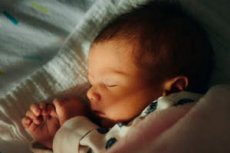New publications
Most young women treated for breast cancer can have children
Last reviewed: 02.07.2025

All iLive content is medically reviewed or fact checked to ensure as much factual accuracy as possible.
We have strict sourcing guidelines and only link to reputable media sites, academic research institutions and, whenever possible, medically peer reviewed studies. Note that the numbers in parentheses ([1], [2], etc.) are clickable links to these studies.
If you feel that any of our content is inaccurate, out-of-date, or otherwise questionable, please select it and press Ctrl + Enter.

A new study by researchers at Dana-Farber Cancer Institute offers encouraging news for young women who have survived breast cancer and want to have children.
A study that tracked nearly 200 young women treated for breast cancer found that most of those who tried to conceive for an average of 11 years after treatment were able to conceive and have a baby.
The findings, to be presented at the 2024 annual meeting of the American Society of Clinical Oncology (ASCO), are particularly significant because they answer several questions left unanswered by previous studies of pregnancy and live birth rates among breast cancer survivors, the study authors say.
“Previous studies have been limited because they included select subgroups of patients, followed patients for a relatively short period of time, and did not ask participants if they tried to conceive during the study period,” says senior study author Anne Partridge, MD, MPH, founder and director of the Young Adult Breast Cancer Program at Dana-Farber. “This study was designed to address these gaps by tracking pregnancy and live birth rates among a group of breast cancer survivors and patients who indicated they tried to conceive after a cancer diagnosis.”
The patients in the study were participants in the Young Women's Breast Cancer Study, which tracks the health of a group of women diagnosed with breast cancer before age 40. Of the 1,213 eligible participants, 197 reported trying to conceive during an average follow-up of 11 years. In this group, the average age at diagnosis was 32, and most were diagnosed with hormone-positive breast cancer. Participants were asked periodically whether they were trying to conceive and whether they had conceived and given birth.
During the study, 73% of women trying to conceive achieved pregnancy, and 65% had a live birth, the researchers found. Those who chose to preserve fertility by freezing eggs/embryos before starting cancer treatment had higher rates of live birth, while older participants had lower rates of pregnancy and live birth.
The study participants had breast cancer ranging from stage 0, which is noninvasive and confined within the milk duct, to stage III, where the cancer has spread to the lymph nodes. The researchers found that the stage of the disease at diagnosis was not statistically associated with achieving pregnancy or live birth.
“For many young women with breast cancer, the ability to have children after treatment is a major concern,” said first author Kimiya Soruri, MD, MPH, of the Dana-Farber Institute. “Our study findings may be useful when counseling patients about fertility. The finding that pretreatment egg/embryo freezing was associated with a higher live birth rate highlights the need for fertility preservation services to be available to this patient population.”
